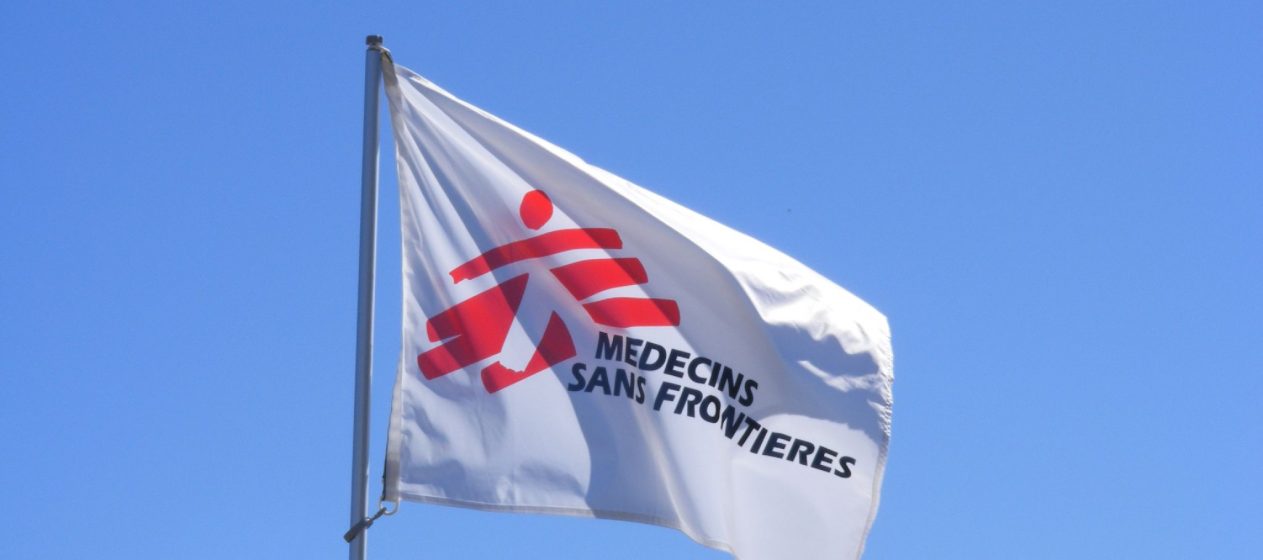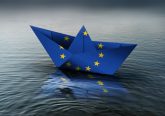On 17 June 2016, Médecins Sans Frontières (MSF) International tweeted: ‘We cannot accept funding from the EU or the Member States while at the same time treating the victims of their polices! It’s that simple.’ The decision is a vivid example of MSF’s political engagement, this time in reaction to EU policies aiming to deter immigration. However, MSF’s actions sit uneasily with the organisation’s politically neutral and impartial public image. The political aspects of its work are not well-captured by the principles of independence, neutrality and impartiality that MSF celebrates, an issue that may hinder members of the public from being fully informed about which humanitarian charities best align with their beliefs. Two notions help to illustrate the political nature of MSF’s work: the ethic of refusal and témoignage.
MSF’s ethic of refusal
MSF’s decision to refuse funding from the EU and Member States is an example of the organisation’s humanitarian “ethic of refusal” in action. The idea underpinning the ethic of refusal is encapsulated in the maxim that ‘people shouldn’t die of stupid things’ (Redfield 2013: 65). It is the commitment to refuse to accept action which causes “unnecessary” death, mirroring a prominent MSF president’s claim that humanitarianism is ‘a challenge to political choices that too often kill or allow others to be killed’ (Orbinski 2009: 6).
Two steps in MSF’s ethic of refusal underline its political nature. The first is judgment. In order to implement its ethic of refusal, MSF must judge what “stupid things” causing death are unacceptable. This is a political judgment because it involves challenging certain governmental policies. In the current case, when the organisation labelled groups of refugees and migrants as victims of EU policy, it judged governments to be villains. While claiming that ‘we don’t take sides’, in effect MSF took sides against Member States.
A second step in MSF’s ethic of refusal is activism, linked to its operationalisation of humanitarian philosophy. In humanitarian philosophy, the broad objective of action is to save lives, which can be achieved in different ways. A less politicised method of saving lives would be to assist those suffering without publicly challenging the governmental cause of suffering. The organisation would distribute aid to relieve the worst consequences of the crisis, rather than call on political leaders to end the crisis, similar to the Red Cross in its early years.
MSF’s ethic of refusal is a more politicised method. It frames its work using loaded terms such as the provision of relief to “victims”, rather than minimally as the alleviation of suffering, and it calls for policy change. The International Secretary General of MSF, Oberreit, illustrated this method when, at the same time as the tweet was issued about “victims of EU policies”, he called on European governments to change their priorities: ‘rather than maximising the number of people they can push back, they must maximise the number they welcome and protect.’
Here, MSF engages in civil society issue-politics. Like environmental and gender equality lobby groups, MSF’s ethic of refusal has one goal whichever government is implicated, that of influencing policy according to its philosophical beliefs. MSF criticises government decisions which cause suffering and participates in political activism, casting doubt on the apparent simplicity of its “politically neutral” image.
Témoignage as advocacy
Political activism is not only linked to the ethic of refusal, but also to MSF’s commitment to témoignage—the idea of being a witness to suffering. Witnessing can be unobtrusive, such as the act of accessing otherwise isolated conflict zones, or it can be outward-oriented, such as the public denunciation of suffering (Givoni 2011).
It is useful to think of témoignage as a continuum ranging from presence, understood as being with those suffering, to advocacy, understood as denouncing the causes of suffering. The former practice recognises suffering, where an individual’s dignity is acknowledged through the act of accompaniment. Being present is less political as it does not entail overt criticism of government policy. The latter practice of advocating involves calling for change to minimise suffering. Advocating entails public campaigns and negotiations with governments. It is thus a more politicised, and politicising, path.
The operationalisation of témoignage as advocacy characterises MSF’s approach to crises. This approach reflects the organisation’s dedication “to informing a vast, world-scale public about the human rights abuses that they encounter in the milieu they enter, and to evoking public indignation about them” (Fox 1995: 1609). MSF staff use value-laden call-to-arms language in speaking out against human rights abuses. For instance, regarding the EU refugee crisis, Oberreit stated that deterrence policies which harm individuals in need ‘cannot become the norm and must be challenged’.
MSF does not hide that it is outspoken, but neither does it make explicit that it is politically outspoken. Advocacy is political, even when it is about something seemingly so basic as protecting human beings in need (for comments on the links between liberalism as a political ideology and MSF’s concern for individual human life, see Scott-Smith 2013). The more MSF interprets témoignage as advocacy, rather than as presence, the more engaged in politics it becomes.
Being aware of the political
Organisations can choose to be more or less political in humanitarian situations. MSF chooses to be more. In the EU refugee crisis, its focus on victimhood rather than solely on suffering contributes to a politicised environment, while its interpretation of témoignage not only as presence but as advocacy furthers such politicisation.
It matters that we, as supporters of humanitarian agencies, are aware that to be short of the political label is a choice made by MSF. Similar to many other humanitarian organisations, MSF’s self-promoted image revolves around the ostensibly apolitical principles of independence, neutrality and impartiality. However, that it avoids labelling itself as political does not neutralise the political nature of its actions. It judges governments and calls for policy change. To make informed decisions about which charities best represent our beliefs about humanitarian action, we must be aware of these parts of its operations.
The choice not to have a political label masks key aspects of MSF’s life-saving work, as activism is built into its now expansive mission. After all, one of the founders’ original intentions was to create a ‘medical organization that could act, and could also speak, devoted to health, and also to truth’ (Berman 2007: 230). Aiding “victims” and being outspoken is part of the organisation’s commitment to the service of health and truth.
For the sake of accuracy, then, is it time for MSF to explicitly acknowledge the centrality of the political in its work? Or are there too many risks in committing to words that which is usually left implicit in its public narrative? Either way, to ask these questions is not to criticise MSF and its vital aid. The EU refugee crisis is a dire humanitarian situation that stains the EU’s moral and legal record. To ask these questions is instead to encourage awareness of how organisations represent themselves to the world and how those representations might overshadow important parts of their actions.
References
Berman, P. (2007). Power and the Idealists: Or, the Passion of Joshka Fischer, and its Aftermath. New York: Norton.
Fox, R. (1995). “Medical Humanitarianism and Human Rights: Reflections on Doctors without Borders and Doctors of the World.” Social Science and Medicine, 41(12), pp. 1607-16.
Givoni, M. (2011). “Beyond the Humanitarian/Political Divide: Witnessing and the Making of Humanitarian Ethics.” Journal of Human Rights, 10(1), pp. 55-75.
Orbinski, J. (2009). An Imperfect Offering: Dispatches from the Medical Frontline. London: Rider.
Redfield, P. (2013). Life in Crisis: The Ethical Journey of Doctors without Borders. London: University of California Press.
Scott-Smith, T. (2013). “Book Review. Life in Crisis: The Ethical Journey of Doctors Without Borders. By Peter Redfield.” Journal of Refugee Studies, 26(2), pp.319-21.







